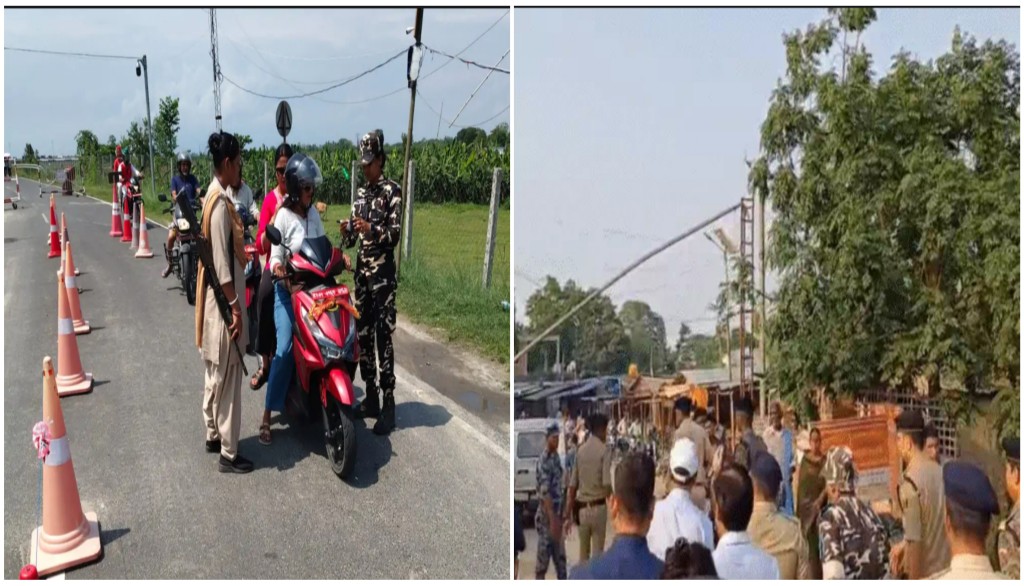
Kishanganj: Security has been significantly increased along the Indo-Nepal border, particularly the 729 km stretch bordering Bihar, following what sources are referring to as “Operation Sindoor.” The move comes amid heightened vigilance aimed at preventing the infiltration of potential operatives, including those linked to Pakistan’s Inter-Services Intelligence (ISI).
Authorities have cancelled the leaves of Sashastra Seema Bal (SSB) jawans stationed along the border. Intensive searches are now being conducted on all individuals crossing the border, with security personnel authorised to check identities up to 15 kilometres inside Indian territory.
The increased surveillance is focused on key border areas including Valmikinagar and Raxaul in East Champaran, Bairgania and Bhitthamod in Sitamarhi, and Jayanagar, Madhavapur, and Laukha in Madhubani. The Araria and Kishanganj border regions are also under constant monitoring to thwart any attempts by undercover agents to enter India.
As part of the enhanced security measures, personnel are collecting Aadhaar cards and examining fingerprints and retina scans of individuals deemed suspicious within the 15 km radius of the border.
The focus on border security is underscored by the fact that at least 12 individuals identified as terrorists have been apprehended along the India-Nepal border in the past 19 years.
Bihar shares multiple entry points with Nepal, including Padiji Champatan, East Champaran, Madhubani, Sitamarhi, Supaul, and Araria.
In Kishanganj, SSB leaves have been cancelled, and round-the-clock surveillance is in place. Additional forces have been deployed in areas such as Thakurganj, Galgalia, Dighalbank, and Tedhagach. Kishanganj District Magistrate Vishal Raj and Superintendent of Police Sagar Kumar recently met with a Border Security Force (BSF) Deputy Inspector General to discuss border security.
Similar heightened vigilance is reported along the Jogbani border in Araria district, where strict checks on identity cards and belongings are being carried out. Anand Singh Bhandari, Assistant Commander of the Jogbani SSB camp, stated that while checking is routine, the current level of scrutiny is particularly stringent.
In the Bagaha region, District Magistrate Dinesh Kumar Rai and Superintendent of Police Sushant Kumar Saroj inspected the Valmikinagar border, with the SP staying overnight to hold meetings with SSB officers and instruct them to remain alert for suspicious activities. Authorities are closely scrutinising identity documents of those crossing, given the traditionally open nature of the Indo-Nepal border.
Concerns remain about the ease of entry into India from Nepal, which can occur through travel agent networks facilitating fake documentation, with the help of villagers along the border, or by individuals simply crossing through less guarded pathways. Experts note the involvement of networks and guides in aiding infiltration.
The porous nature of the Bihar-Nepal border has historically been exploited, with the arrest of several terrorists with links to groups like Indian Mujahideen and Jamaat-ul-Mujahideen in the region since 2006. The open border has been described as a “soft target” for the ISI, with key areas like Raxaul and Sonauli being particularly sensitive.






